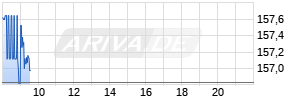Reputation Management Agency Explains Google's New Hummingbird Update
JW Maxx Solutions is an industry-leader in online reputation management and provides positive media outcomes to growth-oriented companies.
Scottsdale, Arizona - Reputation management agency JW Maxx Solutions utilizes the latest technology and methods in order to provide its clients with tangible results that change their online landscapes. One of the ways that this online reputation management company does this is through targeting keywords in order to build positive media assets.
Keyword selection and implementation is both a simple and complicated process. It is imperative that key words are selected from words that the searcher is using. When starting to target several keywords, it is oftentimes helpful to look at the suggested key words in order to find out what other people are searching for.
Reputation management specialist JW Maxx Solutions shares that one of the ways to utilize key words is through the use of long tail keywords. These keywords are usually three or more words long and can target a phrase or give more information about the keyword. For example, if the business was an Italian restaurant in Memphis, one long tail key word could be, "best Italian restaurant in Memphis;" if a business made bottle stoppers for wine, a targeted keyword could be, "the best way to save a bottle of wine."
Last month, Google announced the biggest update that the search engine has seen in over ten years. The updates, nicknamed "Hummingbird," were made to the algorithms that Google uses to pull up search engine results and will affect more than 90 percent of future results. Essentially, there are three big parts to this update that people need to know about, and the reputation experts at JW Maxx Solutions are breaking down the update to inform people on how to best take advantage of these new search engine algorithms.
One of the many advantages to this new update is that Google is now smart enough to recognize synonyms of searched words and phrases. For example, if a company sells custom-made writing tools, searches for words like "custom-made writing pens," "custom-made writing pencils," "custom-made writing utensils," and more would pull up their information. In short, this means that companies should target the synonyms of their key words; the overall meaning of these words is now more important that each specific word.
Reputation management agency JW Maxx Solutions believes in implementing long tail keywords, and has seen profound effect that these key words have on search engine results. With this new update that is optimized to handle long tail keywords better than ever before, this online reputation management company encourages business to do some research into the best long tail key words for their company.
Online reputation management company JW Maxx Solutions is excited about these new updates to Google's algorithms, and is looking forward to seeing how long tail keywords make an even more profound effect on search engine results. For more information about JW Maxx Solutions, visit http://www.jwmaxxsolutions.com.
The owner of this announcement warrants that:
(i) the releases contained herein are protected by copyright and other applicable laws; and
(ii) they are solely responsible for the content, accuracy and originality of the
information contained therein.
Source: JW Maxx Solutions via Thomson Reuters ONE
Mehr Nachrichten zur Alphabet A Aktie kostenlos abonnieren
(Mit der Bestellung akzeptierst du die Datenschutzhinweise)

Hinweis: ARIVA.DE veröffentlicht in dieser Rubrik Analysen, Kolumnen und Nachrichten aus verschiedenen Quellen. Die ARIVA.DE AG ist nicht verantwortlich für Inhalte, die erkennbar von Dritten in den „News“-Bereich dieser Webseite eingestellt worden sind, und macht sich diese nicht zu Eigen. Diese Inhalte sind insbesondere durch eine entsprechende „von“-Kennzeichnung unterhalb der Artikelüberschrift und/oder durch den Link „Um den vollständigen Artikel zu lesen, klicken Sie bitte hier.“ erkennbar; verantwortlich für diese Inhalte ist allein der genannte Dritte.



